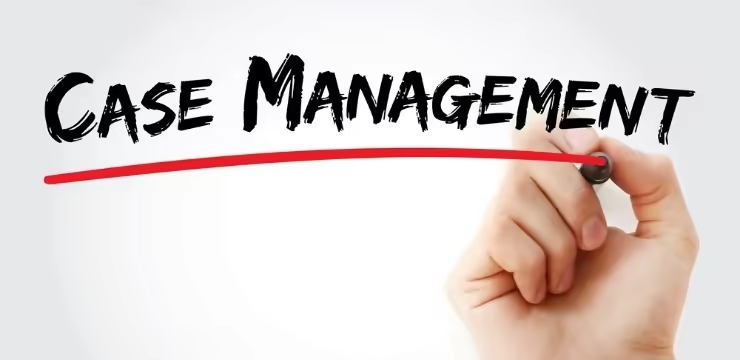What is HR case management?
HR case management is the procedure used by HR departments to answer questions and handle issues that employees submit. A case management system for human resources is typically used to handle queries and requests and is a technical way to increase case management effectiveness. Employees can monitor how and by whom their inquiries are resolved under such a system.
Effective HR service delivery and shared services depend on an effective HR case management procedure.
The HR department handles various situations, including grievances, complaints, payroll problems, policy revisions, employee onboarding, and employee offboarding. The majority of cases that Human Resources manages concern employees' welfare. These instances typically demand a lot of physical labour, such as submitting written requests, filling out forms, looking into problems, and sending emails. And given how laborious and time-consuming these operations are, automation is unquestionably needed.
Types of HR Cases
HR cases are employee inquiries or problems that require HR's consideration. Several of these may be linked to:
Onboarding - HR case management software is a helpful resource for addressing inquiries and ensuring a positive employee experience as their journey begins. As they start their journey into a new business, new employees frequently have questions about the company, essential HR processes, procedures, rules, and benefits.
Benefits - Using HR case management software helps increase this task's effectiveness. Open Enrolment, processing claims, and changing dependents are just a few of the many issues. By investing in case management software, HR and benefits specialists can resolve common inquiries quickly and easily, freeing them up to handle more complicated problems.
Employee grievances - employee relations can be challenging. Employee relations experts or the HR department must still step in to settle disputes between employees in some circumstances. Employees are frequently trained and coached to work respectfully and professionally with one another.
Payroll and Taxes – The HR Case Management System offers recorded replies that allow payroll specialists to concentrate on payroll administration. Additionally, it gives them time to address any complicated issues that do come up and require extra care.
Performance - Employees could be curious about how their performance is evaluated and whether they qualify for bonuses or merit adjustments. Your company can rapidly respond to inquiries using case management software.
Leave - Because every employee's living circumstance is different and subject to sudden change, managing leave can become challenging. However, using HR case management software, the HR team members may quickly and legally meet each employee's particular needs.
How Does HR Case Management Work?
Like every other department in a corporation, HR is advancing with automation technology. An automated HR case management system makes it very simple for the HR staff to track, handle, and resolve employee-related matters.
When an employee expresses a problem, the HR manager assigns the case to a team member who will be the primary point of contact for any case-related issues. The case handler then charts the case's path by analyzing the information supplied by the employee and acting effectively to fix the problem at their discretion.
Sometimes the investigation will need working with several teams and keeping an accessible and verifiable record of all communications with stakeholders, employees, and other teams. Lastly, because HR matters are time-sensitive, case handlers must be agile and knowledgeable to determine context and reach a resolution quickly. With all of this, an HR case management solution is beneficial.
Related: 5 Benefits of Having an HR Contact Center
Benefits of HR Case Management Software
Providing outstanding service to employees is one of HR's key responsibilities. Some of the questions and issues HR receives are straightforward, while others are somewhat complicated. Consequently, these concerns frequently have various priority levels and projected settlement deadlines.
To maintain consistency and accuracy in case resolution, major enterprises must use HR case management software to help them manage the number and complexity of queries coming to HR.
The following are some advantages of an HR case management system:
Ease of Investigation
Context is vitally necessary for promoting a favorable settlement in HR cases. An HR case management system makes it simple for case handlers to compile all relevant facts and data in one location. They can then examine the facts to draw meaningful conclusions that aid in a speedy and effective case resolution.
Accurate documentation
Every case involving an employee must have accurate documentation as its foundation. To ensure that all data is logged and accessible inside the system, HR case management interacts flawlessly with other business organization tools. Additionally, it guarantees that case managers always have access to a record of completed tasks and pertinent paperwork.
Process automation
By providing FAQs and HR knowledge bases that your staff can readily access and designing procedures for various case types, the technological solution avoids repetitive questions. The HR team now has more time to concentrate on the problems that demand a deeper investigation.
Grievance Reporting
As staff is given a standard template to describe and express complaints, investigations may become easier to manage. When all the data is readily available in one location and is formatted consistently, HR can respond to each complaint individually.
Instant Access
HR is immediately accessible through the software. Employees are not required to schedule a meeting with HR to ask a question or express a concern.
Prioritization
Through the system, cases can be assigned and given priority. This aids HR in resolving a variety of problems quickly and effectively. It might be more important to answer a harassment complaint than to add a dependent to a benefit plan. But because adding the dependant can be done quickly, it can be taken off the list, giving more time and resources to deal with the harassment allegation.
Enabling quick escalation
Cases left unresolved by an inexperienced HR person take longer to handle and may become more challenging to settle. By making sure the issue is handled by the appropriate HR representative who has the necessary expertise to resolve it quickly, HR case management software can avoid this.
Increasing cooperation
Since everyone on the team has simultaneous access to the same information, they may work together to solve complex issues.
Smarter decision-making
The situations that HR staff handle often have tight deadlines. The sooner they are resolved, the sooner damage control and preventative measures can be taken. HR case management solutions not only assist case handlers in quickly and effectively resolving cases but also lead to employee satisfaction and improve the organization's reputation.
HR case management best practices
- Choose a reliable HR case management software
Your decision will be based on your needs. However, there are a few common qualities and skills that you should consider for your system. Look for systems with scalable, user-friendly Interfaces that enable integrations and a range of access levels. It is a critical aspect of your digital employee experience.
- Adequately board your employees
You must adequately train your workforce to use the system if changing your HR case management system or when onboarding new employees. If you don't, employees will swarm HR with inquiries, some of which may be misdirected or unanswered.
When employees are properly onboarded, they are empowered to use the self-help system, submit inquiries or problems, and enable HR to deliver high-quality, personalized assistance.
- Make sure there are various access levels
Users should only be able to see the information they require. This promotes data security and secrecy. Likewise, multiple levels of access should be available to HR experts.
- Develop accurate and thorough documentation
For the sake of compliance and transparency, you should have an auditable trail for each of the cases. HR must always make sure that:
- The responses are consistent, the processes adhere to statutory rules like HIPAA, and no one is given a different treatment.
- Identify problems that come up often
You can review the sorts and frequency of cases and employee interactions when all your HR cases are in one location. This allows you to identify future issues and patterns, which aids in developing more informed decisions.
For instance, if the same unit consistently files grievances, ER Specialists may want to look into those managers' management styles and skills. They can even run an engagement survey for that unit to gain more data.
Related: Role of Technology in Human Resource Management
Conclusion
Investment benefits include personnel retention and access to predictive data for planning. A strong HR case management procedure will help you rapidly address problems and respond to inquiries. Additionally, it offers essential information about areas where employees are not happy.



